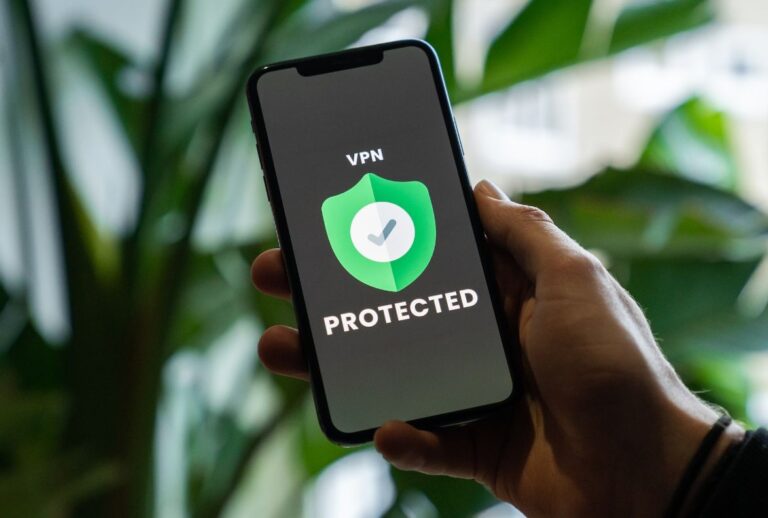The rise of remote work has revolutionized how businesses operate, offering employees flexibility and a better work-life balance. However, with this shift comes the critical need to address remote work cybersecurity. Protecting sensitive information and systems outside traditional office environments is essential for maintaining business continuity and mitigating cyber threats.
What is Remote Work Security?
Remote work security encompasses the measures taken to protect sensitive information and systems while working from locations outside traditional office environments. It safeguards digital assets, communication channels, and networks from unauthorized access or breaches. Ensuring secure access to company resources and data while employees work remotely is paramount for maintaining business continuity and mitigating cyber threats.
Best Remote Work Security Practices
To ensure remote work security, companies must implement robust cybersecurity measures. Here are some best practices:
- Use Strong, Unique Passwords: Each account and system accessed remotely should have a strong, unique password. Avoid using easily guessable information and common patterns in passwords.
- Implement Multi-Factor Authentication (MFA): Adding an extra layer of security beyond passwords helps protect against unauthorized access.
- Regularly Update Software and Systems: Keeping software, operating systems, and security patches up to date prevents vulnerabilities.
- Encrypt Sensitive Data: Protect data at rest and in transit from interception or unauthorized access by using encryption.
- Educate Employees: Provide training on cybersecurity best practices, including recognizing and avoiding phishing attempts.
- Utilize Password Managers: Tools like NordPass ensure password security when accessing company resources remotely.
- Establish Security Policies: Tailor security policies and procedures to remote work environments, including password management and device usage guidelines.
Is Password Security Important When Working Remotely?
Password security is crucial when working remotely as it serves as the first line of defense against unauthorized access to sensitive information. Weak or compromised passwords can lead to data breaches, identity theft, and financial losses. With the increasing prevalence of remote work, ensuring strong password security is essential to protect personal and organizational assets.
Weak Password Risks When Working Remotely
- Credential-Stuffing Attacks: Reusing passwords across multiple accounts increases the risk of such attacks if one account is compromised.
- Brute-Force Attacks: Easily guessable passwords or those based on common patterns are vulnerable to brute-force attacks.
- Exploitation from Leaked Passwords: Lack of regular password updates leaves accounts susceptible to exploitation, especially if passwords are leaked or stolen.
- Vulnerability Without MFA: Failure to implement MFA leaves accounts vulnerable to unauthorized access, even with compromised passwords.
Password Security Best Practices for Remote Work
- Use Complex Passwords: Combine letters, numbers, and special characters in your passwords.
- Avoid Guessable Information: Do not use easily guessable information such as birthdays, names, or common words in passwords.
- Change Passwords Regularly: Update passwords every 90 days to minimize the risk of unauthorized access.
- Use Trusted Password Managers: Store passwords securely using tools like NordPass rather than relying on memory or insecure methods.
- Enable MFA: Add an extra layer of protection to accounts whenever possible.
- Avoid Sharing Passwords: Do not share passwords or write them down in easily accessible locations.
- Regularly Audit Password Practices: Review and update password security practices to identify and address any weaknesses.
How Can a Business Password Manager Help While Working Remotely?
A business password manager like NordPass offers several benefits for remote work security:
- Secure Storage and Management: Password managers securely store and manage complex passwords for multiple accounts, reducing the risk of weak or reused passwords.
- Convenience: They generate and auto-fill unique passwords, streamlining the login process without compromising security.
- Encryption: Password managers encrypt stored passwords, protecting them from unauthorized access or theft.
- Remote Access: Users can securely retrieve passwords from anywhere, eliminating the need to memorize or share them.
- Centralized Administration: Organizations can enforce strong password policies and facilitate secure collaboration among remote teams with centralized administration and password-sharing features.
NordPass Business Benefits for Remote Work Security
NordPass Business offers several benefits to enhance remote work security:
- Secure Storage: Advanced encryption ensures the secure storage of passwords, passkeys, and other sensitive data.
- MFA for Security: Multi-factor authentication provides an additional layer of security.
- Detection of Weak Passwords: It detects weak, old, and reused passwords throughout the company.
- Customizable Access Levels: Efficient collaboration is enabled through customizable access levels and sharing permissions.
- Seamless Integration: NordPass Business integrates with single sign-on solutions like Google Workspace SSO, Okta, Entra ID, and AD FS Setup.
- Simplified Onboarding and Offboarding: The onboarding and offboarding processes for employees are simplified.
- Proactive Security Measures: Regular updates and proactive security measures help mitigate emerging threats.
- Dedicated Customer Support: 24/7 customer support ensures smooth implementation and operation.
Additional NordPass Information
Security:
- Encryption: NordPass Business uses the XChaCha20 encryption algorithm.
- Zero-Knowledge Architecture: Ensures the security of your important credentials.
- MFA: Provides additional layers of security.
- Biometric Authentication: Ensures only you can access your saved passwords using physical traits such as fingerprints.
- Independent Security Audit: Conducted by the German firm Cure53.
- ISO 27001 Certification: Ensures compliance with international standards.
- SOC 2 Type 1 Audit: Ensures secure data management.
Customer Support:
- 24/7 Support: Available via email or the FAQ page.
Other Facts:
- Wide Adoption: Used by over 3.8 million individuals and 4,400 companies worldwide.
- High Trustpilot Rating: 4.3 stars.
- Compatibility: Works with most operating systems, including Windows, macOS, Linux, Android, and iOS.
- Nord Security Products: Includes NordVPN, NordLocker, NordLayer, and NordWL.
Conclusion
Remote work security is essential for protecting sensitive information and systems outside traditional office environments. By implementing strong password security measures, using tools like NordPass, and educating employees on best practices, companies can significantly reduce the risk of cyber threats and ensure the safety of their digital assets. Embracing these strategies will not only safeguard your organization but also enhance your authority and expertise in the digital landscape.
Call to Action
Ensure your remote work environment is secure by adopting NordPass Business for robust password management. Secure your digital assets today and protect your organization from cyber threats with advanced encryption and multi-factor authentication. Visit NordPass to learn more and take the first step towards enhanced remote work security.






